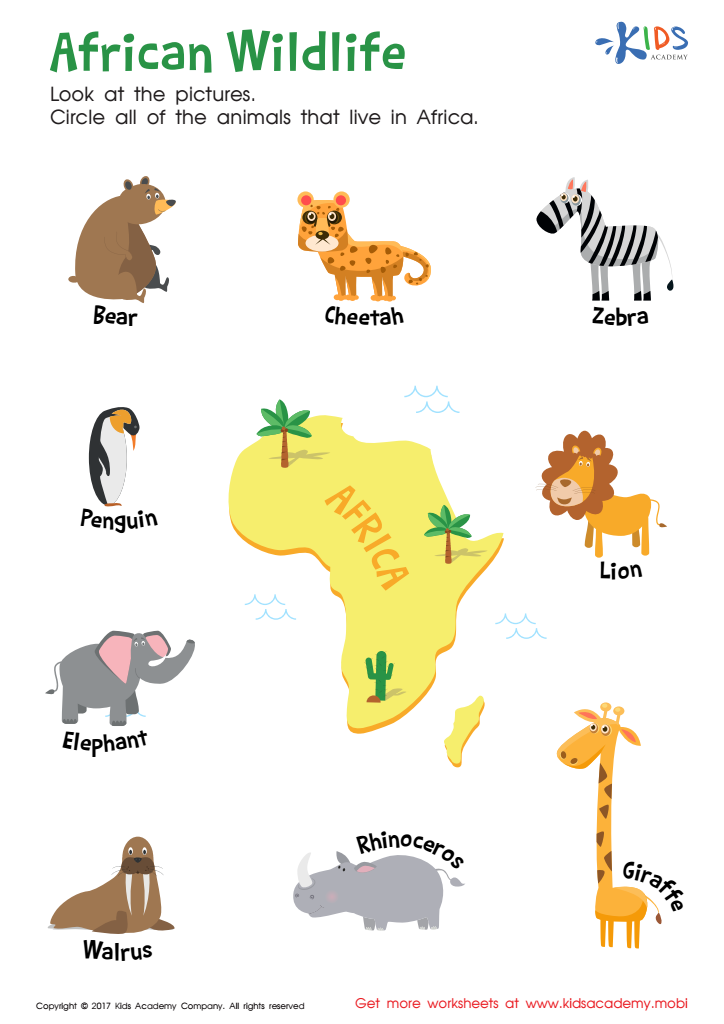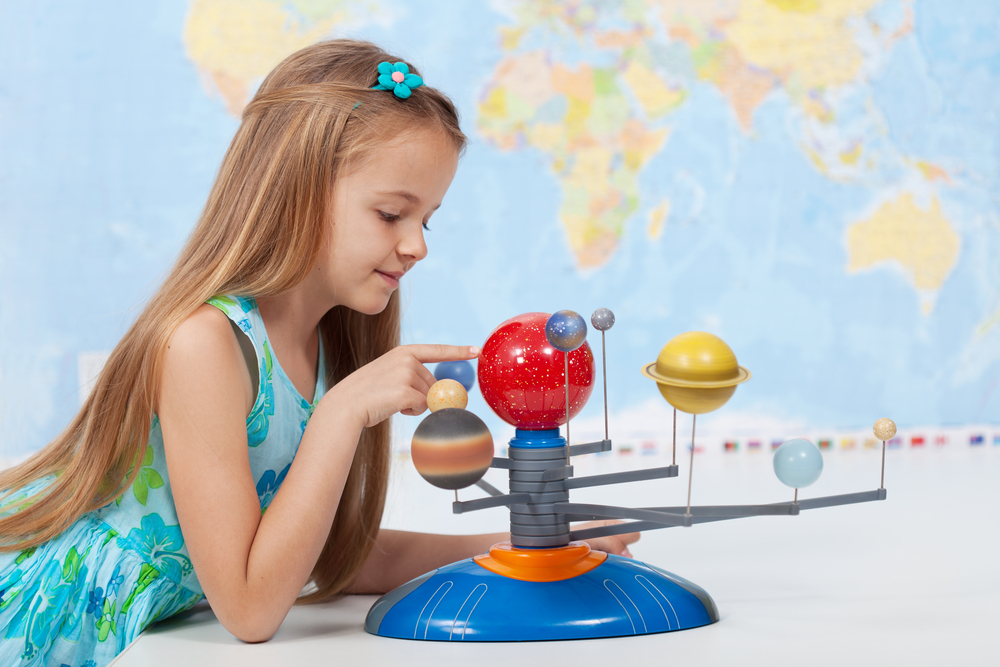Animal recognition Science Worksheets for 6-Year-Olds
5 filtered results
-
From - To
Discover our engaging Animal Recognition Science Worksheets designed specifically for 6-year-olds! These fun, interactive resources help young learners identify and categorize different animals, enhancing their understanding of the natural world. Each worksheet is tailored to promote critical thinking and observational skills, featuring vibrant illustrations and age-appropriate activities. Children will enjoy matching animals with their habitats, labeling body parts, and exploring unique traits. Perfect for classroom use or at-home learning, these worksheets provide an enriching educational experience, encouraging curiosity about wildlife. Start your child's adventure into the animal kingdom today with our comprehensive collection of science worksheets!


Sorting Animals in 3 Groups Worksheet
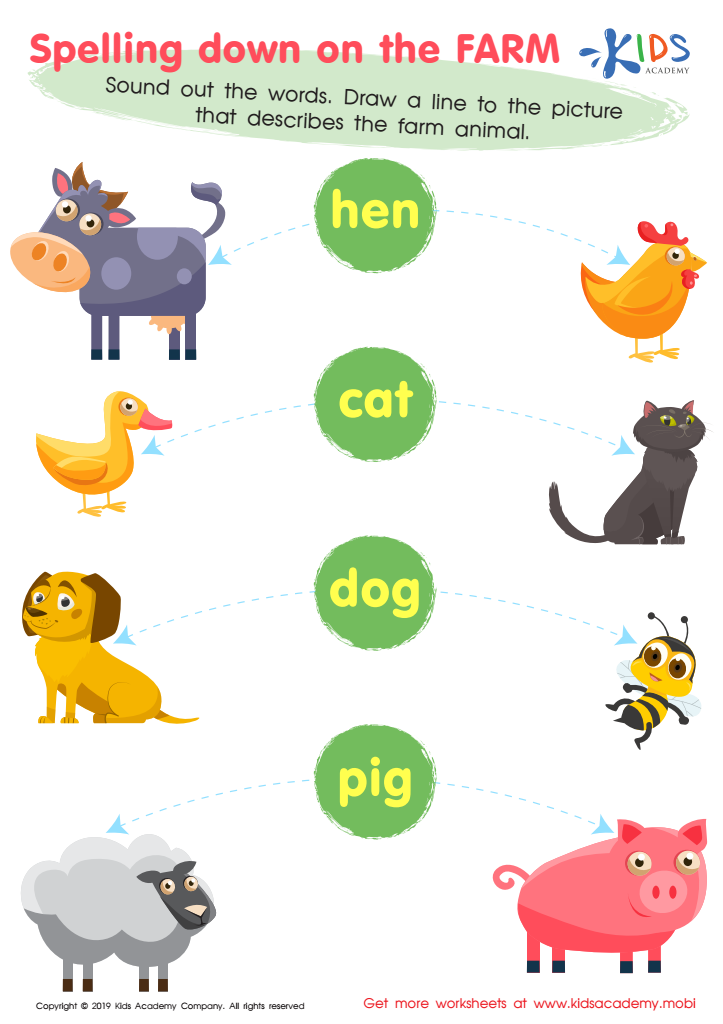

Spelling Down on the Farm Worksheet
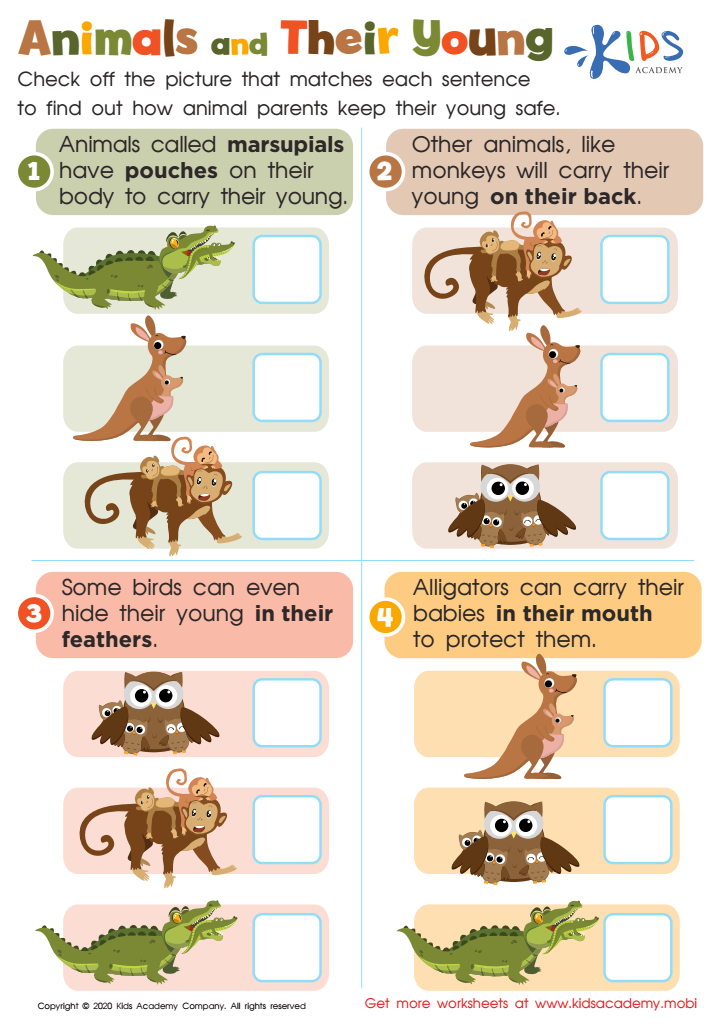

Animals and Their Young Worksheet
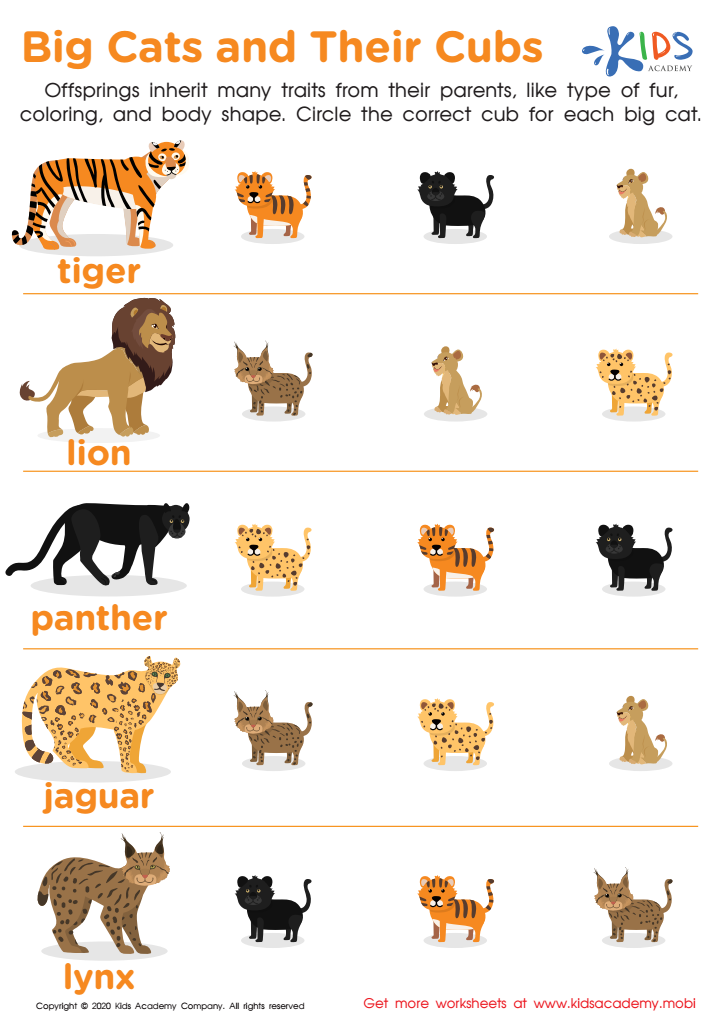

Big Cats and Their Cubs Worksheet
Animal recognition science is vital for 6-year-olds as it enhances their cognitive development and fosters a connection with the natural world. At this age, children are naturally curious about their environment, and learning to identify different animals encourages exploration and inquiry. This subject not only enriches their vocabulary with names and characteristics of various species but also introduces them to basic concepts like habitats, diets, and social behaviors.
Parents and teachers should care because understanding animals promotes empathy and respect for living beings. As children learn about various animals, they also grasp the importance of biodiversity and conservation efforts at a young age, cultivating responsible future citizens. Engaging with this science helps develop critical thinking, problem-solving skills, and the ability to classify and categorize information.
Moreover, animal recognition activities can enhance fine motor skills through art projects or interactive games. With technology's aid, virtual reality or apps can provide immersive experiences that deepen children's knowledge and stimulate their interest. In summary, integrating animal recognition science in early education not only enriches children's learning experiences but also shapes their values and understanding of the world around them. It lays a foundational appreciation for science and the environment that can last a lifetime.

 Assign to My Students
Assign to My Students
